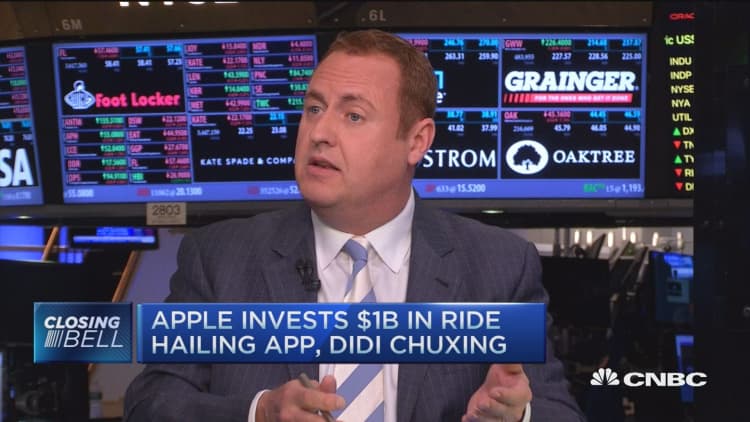Uber and Lyft left Austin, Texas, when the city's voters rallied for fingerprinting and tougher background checks for its drivers. Now it's up in the air whether or not the ride-share rivals will take the next exit out of the Windy City because of an ordinance that passed on Wednesday.
A 36-12 vote passed in favor of harsher regulations for Uber and Lyft, whose drivers now must acquire a special chauffeur license to drive like their taxi counterparts.
This "[forces] Chicago's 35,000 uberX driver-partners to get chauffeur licenses...hurting one industry to help another is the wrong approach," Uber said in a statement on Monday ahead of the Wednesday vote, titled "A Chicago without UberX."
Chicago City Council Transportation Committee Chairman Anthony Beale, who sponsored the ordinance, originally pushed for stricter, more costly licensing and background checks that include fingerprinting for all Uber and Lyft drivers to match requirements met by taxi drivers. Lyft and Uber, who already vet drivers in-house, saw no need to be held to full-time chauffeur requirements.
"This ... forces part-time Lyft drivers into an onerous, outdated model — requiring hundreds of dollars in fees just to share a seat in their car," said Lyft's Chelsea Wilson of the original proposal. "We will be forced to cease operations in Chicago if this ordinance becomes law."
But Beale made a compromise upon seeing pushback from colleagues: Uber and Lyft can stick around for six months without fingerprinting drivers while he conducts an independent study on its fairness and safety. He also gave the companies one year to develop a plan to make at least 5 percent of their rides accessible to disabled passengers or face a $10,000-per-day fine.
Lyft and Uber rallied behind this less hawkish deal, Beale told CNBC.
"While not perfect, we believe this compromise will preserve ridesharing and ensure drivers can continue to serve every neighborhood in Chicago," Uber said in a statement on Thursday.
But this revised ordinance only bought Lyft and Uber a six-month delay. If the independent study gives Beale the greenlight on fingerprinting, Lyft and Uber are back to square one.
"Fingerprinting was the biggest part of contention for a lot of my colleagues. If that study finds that fingerprinting is necessary, then we're going to bring it back to the council to implement mandatory fingerprinting for Uber and Lyft," Beale said.
Carlos Correa, a Lyft driver and a part-time MBA student, said he felt shaken up when he heard there would be a three-month backlog for new drivers if every driver in Chicago were to be fingerprinted. It's unclear how long existing Lyft drivers would need to wait until they could start driving again.
"Will I be put on hold for three months until the fingerprints go through? Will I be put on hold to keep my family afloat and pay for school? I have two daughters in college," Correa, 42, said.
If Uber and Lyft leave due to mandatory fingerprinting, Chicagoans won't need to worry because smaller firms will take the place of the billion-dollar companies, said Beale.
"I've been notified of at least four companies that said they will provide the same service. If Uber and Lyft choose to leave [in six months time], there's people ready to fill that void," Beale said.
He didn't list the companies, but said that some of these companies have already opened up in Austin and that they "will do fingerprinting with no problem at all."

In the meantime, Lyft will conduct a third-party study that examines the most effective way to conduct background screenings. For now, it stands behind its safety process, which includes in-app photos of the driver, two-way rating systems, reviews and a trust and safety team, according to Wilson.
"Everything we've done — not just between taxis and ride-sharing, but in the sense of [bike-sharing program] Divvy and investing in public transportation — is to give commuters safe, reliable and comfortable choices," mayor Rahm Emanuel told the Chicago Sun-Times.

